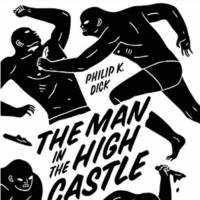As the term "fascism" is tossed about by alarmists, some perspective is gained by reading Philip K. Dick's award-winning classic, "The Man in the High Castle." First published in 1962 and recently made into a series for Amazon TV, the novel imagines a counterfactual World War II, in which Germany and Japan have conquered Europe and America. It is fascism, the real thing. The Nazis, propelled by megalomania, are governing the East Coast of the U.S. and move on to colonize Mars. The Japanese rule the West Coast, administering calmly and collecting Americana, unsure how to play their pre-eminence.
Dick mines the nightmare in utter consequence, like an ode to the real history that might never have happened. As characters navigate a new San Francisco and German leadership decides the next fuhrer, a judo instructor and her lover meet the author of the mysterious book, "The Grasshopper Lies Heavy." It is a forbidden screed that dreams the unthinkable: a world in which America won the war.
Dick, who used I Ching hexagrams to decide turns in the plot, writes a breathless prose that barely keeps up with his vision. But the reversal of roles between occupier and occupied allows a unique form of empathy. When a broker of antiques defers to a Japanese customer who keeps mispronouncing his name, the reader can feel the shame of defeat, of having to be "a servant in your own country." Rendered masterfully, it is an effect only fiction can produce.
Read archived reviews of Japanese classics at jtimes.jp/essential.



















With your current subscription plan you can comment on stories. However, before writing your first comment, please create a display name in the Profile section of your subscriber account page.